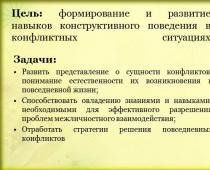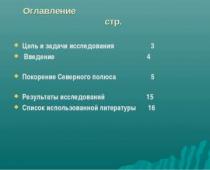Biomedical research is carried out at IBMH in the following areas:
- Identification of biomarkers for risk prediction and early diagnosis of socially significant diseases using post-genomic technologies (personalized medicine)
- Development of molecular detectors, reagents, algorithms and laboratory protocols to create new methods of medical diagnostics
- Search for molecular targets, design and study of physiologically active substances, creation of drug transport systems
Bioinformatics Department:
The IBMH Bioinformatics Department conducts research in the field of bioinformatics and computer-aided drug design. The presence of qualified specialists, original and commercially available software and databases, as well as high-performance computing resources allows us to carry out fundamental research and applied developments covering the entire chain “From genomes to drugs in silico”.
The Bioinformatics Department of IBMH currently includes five laboratories:
Bio information technologies(supervisor - corresponding member of the Russian Academy of Sciences, Doctor of Biological Sciences Andrei Valerievich Lisitsa).
Analysis of post-genomic data (headed by Elena Aleksandrovna Ponomarenko, PhD).
Structural and functional design of drugs (headed by Prof., Doctor of Biological Sciences, Candidate of Physical and Mathematical Sciences Vladimir Vasilievich Poroikov).
Structural bioinformatics (head - Doctor of Biological Sciences Alexander Vladimirovich Veselovsky).
Parallel computing and information technologies (head - Ph.D. Vladlen Stanislavovich Skvortsov).
Information taken from open sources. If you want to become a page moderator
.
Chemical Technology and biotechnology, Chemistry
Directions:
Full-time, Part-time, Part-time
Form of study:
No. 0004 series 90Л01 No. 0000004 valid from 05/29/2012 indefinitely
Licenses:
state standard
Certificate of completion:
Language of instruction:
Department of Proteomic Research and Mass Spectrometry, Department of Bioinformatics, Department of Personalized Medicine, Scientific Laboratories, Department of Nanomedicines
Divisions:
University characteristics
| Availability of a departmental school for employees’ children: |
|
| Availability of departmental kindergarten for children of employees: |
|
| Educational activities: |
|
| Educational programs - EP: |
|
|
|
| Dissertation Council: |
|
| Scientific publications: |
|
| Subsidiaries, representative offices, branches: |
|
| Production base: |
|
| Advanced training programs: |
|
| Availability of HAC media: |
|
general information
FSBI "IBMH" RAMS
conducts medical and biological research in the following areas:
Identification of biomarkers for risk prediction and early diagnosis of socially significant diseases using post-genomic technologies (personalized medicine)
Development of molecular detectors, reagents, algorithms and laboratory protocols to create new methods of medical diagnostics
Search for molecular targets, design and study of physiologically active substances, creation of drug transport systems
The staff number is 182 employees, of which 169 are scientific workers (29 doctors of sciences, 82 candidates of sciences).
The Institute's cumulative H-index for 2011, according to Web of Science, is 32.
Areas of expertise: biochemistry and medicinal chemistry, transcriptomics, proteomics and metabolomics, nanobiotechnology, cell and systems biology, bioinformatics.
The Institute is an educational and research base for students of the Medical and Biological Faculty of the Russian National Research Medical University.
It was created in 1944 as the Institute of Biological and Medical Chemistry of the USSR Academy of Medical Sciences on the basis of the departments of biochemistry and organic chemistry of the All-Union Institute of Experimental Medicine.
Modern name - since 1992. In 1944-1948. the institute was headed by academician Academy of Sciences of the SSR Ya.O. Parnas, in 1949-1989 - academician RAMS V.N. Orekhovich. Academicians worked at the institute. A.E. Braunstein, M.M. Shemyakin, S.E. Severin, N.A. Yudaev and other outstanding Russian biochemists.
The main research is related to the study of the structural and functional organization of biological macromolecules, mechanisms of intermolecular recognition during immune reactions, enzyme-substrate interactions, in reception processes, with the development of new methods of bioinformatics and computer-aided drug design, with the creation of tools for the diagnosis and treatment of the most common diseases; the hepatoprotector “Phosphogliv” has been developed and is being produced, intended for the treatment of liver diseases of various etiologies, including viral hepatitis (Government Prize Russian Federation in the field of science and technology (2003) for the creation of the domestic drug “Phosphogliv” for the treatment of liver diseases).
The Institute created the country’s first Department of Proteomic Research (2000) and the collective use center “Human Proteome” (from 2003 to 2010, the collective use center “Center for Postgenomic Technologies”), and publishes the scientific and practical journal “Biomedical Chemistry” (name until 2003 - “Issues of medicinal chemistry”). Since 2007, the most rated articles of the Biomedical Chemistry journal have been published on English language as a supplement to the journal Biochemistry (Moscow) - Supplement Series B: Biomedical Chemistry.
The Institute is an educational and research base for undergraduate and graduate students.

1 of

Fundamental programs scientific research Russian Academy medical sciences for 2008-2012:
Study of the molecular mechanisms of the development of socially significant diseases using post-genomic technologies. (laboratory of diagnostic proteomics)
Development of a systematic approach to the analysis of living objects by combining methods of genomics, transcriptomics, metabolomics and bio- and chemoinformatics with mathematical data processing tools in order to identify molecular targets of drug action. (lab. systems biology and structural-functional design of drugs)
Development of original algorithms and computer programs for establishing relationships “amino acid sequence - structure - function” and predicting the functions of new proteins based on amino acid sequences. (lab. bioinformation technologies)
Development of fundamental and applied problems nanopathology. (lab. nanobiotechnologies)
Search for new molecular targets for pharmacological regulation of pathological processes in diseases of the central nervous system nervous system and cardiovascular system (lab. biochemistry of amines and cyclic nucleotides)
Development of experimental and computational approaches for the rational design of drugs and the creation of medicinal nanocompositions and nanomedicines (laboratory of phospholipid nanomedicines and transport systems)
Study of molecular genetic and biochemical mechanisms of neoplastic transformation and tumor progression, new molecular markers for diagnosis (lab. amine biosynthesis)
Topics of the IBMH RAMS within the framework of the RAMS program "Nanotechnologies and nanomaterials in medicine for the period 2008-2015":
Development of technologies for determining ultra-low concentrations of molecules using molecular detectors (laboratory of nanobiotechnology)
Development of medical diagnostic systems based on atomic force microscopy and nanoconducting materials (lab. nanobiotechnology)
Study of new drugs equipped with a transport system based on phospholipid nanoparticles (lab. phospholipid nanomedicines and transport systems)
The Institute was created in 1944 on the basis of the departments of biochemistry and organic chemistry of the VIEM. The first director of the Institute in 1944-1948. was academician Yakub Oskarovich Parnas. Academician Vasily Nikolaevich Orekhovich headed the Institute in 1949-1989. In recognition of his merits in the development of the Institute, in 1999 the Institute of Biomedical Chemistry of the Russian Academy of Medical Sciences was named after V.N. Orekhovich. Since 1989, the Institute has been headed by Academician Alexander Ivanovich Archakov.
The country's largest biochemist scientists took part in the organization and development of the Institute: academicians A.E. Braunstein, M.M. Shemyakin, S.E. Severin, V.M. Rodionov, N.A. Yudaev, S.R. Mardashov, T.T. Berezov; corresponding members V.Z. Gorkin, B.F. Korovkin and I.I. Vautrin; Professor S.Ya. Kaplansky, G.L. Rosenfeld, G.Ya. Wiederschein, V.S. Tongur, T.S. Paskhina, and others. Many significant achievements of domestic biomedical science are associated with their names. In particular, A.E. Braunstein obtained fundamental data on the processes of enzymatic transamination and, in collaboration with Academician M.M. Shemyakin, created
general theory pyridoxal phosphate-dependent reactions; V.N. Orekhovich et al. prolyl endopeptidase (EP 3.4.22.18), cathepsin R (EC 3.4.99.33) and dipeptidyl carboxypeptidase (angiotensin-converting enzyme, EC 3.4.15.1) were discovered and characterized; prof. I.S. Severina obtained fundamental results in deciphering the mechanism of regulation of the activity of aspartate transaminase, the most important enzyme of nitrogen metabolism.
A.I. Archakov is one of the world's leading experts in the field of microsomal oxidation. His work made a significant contribution to deciphering the structural-functional relationships of membrane proteins of the cytochrome P450 superfamily and to understanding the general mechanisms of intermolecular recognition. The results of scientific research obtained by A.A. Archakov et al. were awarded State Prizes: the USSR, the RSFSR and the Russian Federation.
As of January 1, 2004, the Institute employed 210 people, including 122 researchers, including 3 academicians of the Russian Academy of Medical Sciences, 7 professors, 26 doctors and 66 candidates of science.
The structure of the Institute contains a department of proteomic research, nine
scientific laboratories, academic group of RAMS academician T.T. Berezov, research and production department and consultative and diagnostic clinic.
The Institute occupies a leading position in the country in such modern areas of biomedical research as:
- proteomics;
- bioinformatics;
- nanobiotechnologies.
Research and development are carried out by the Institute within the framework of projects of the International Scientific Foundations (ISTC, INTAS, CRDF, Wellcome Trust, Janssen Research Foundation, Royal Society, etc.), the Russian Foundation
basic research, Russian Academy of Medical Sciences, Ministry of Health of the Russian Federation, Ministry of Industry, Science and Technology of the Russian Federation, Moscow Committee on Science and Technology, as well as agreements and cooperation agreements with various organizations.
In 2001, on the basis of the Institute, Russia’s first Center for Proteomic Research was created, working within the framework of the Interdepartmental Scientific and Technical Program “Proteomics for Medicine and Biotechnology” and a number of projects supported by the Ministry of Industry and Science of the Russian Federation, the Ministry of Health of Russia and the Russian Academy of Medical Sciences. Proteomic studies are associated with the inventory and study of post-translational modifications of proteins using the combined use of methods: two-dimensional electrophoresis, chromatography, mass spectrometric analysis of proteolytic fragments of proteins. Applied research is aimed at developing methods for diagnosing hepatitis and tumors, studying industrially important microorganisms, etc.
Using 2D-PAGE, MALDI-TOF mass spectrometry and separation on a SELDI chromatographic chip, it was established that the alpha chain of haptoglobin, apolipoprotein A-I, A-IV, orosomucoid are statistically reliable markers of ovarian cancer, and sulfated glycoprotein is a marker of breast cancer. The methods for analyzing membrane proteins developed in the department made it possible to obtain a proteomic map of liver microsomal proteins reflecting changes in protein expression during their drug induction. In order to study the variability of Helicobacter pylori strains, proteomic typing of isolates from different regions of Russia was carried out.
Employees of the proteomics department have developed
computer programs and databases for analyzing complex mass spectra and identifying marker proteins on proteomic maps, as well as
educational program in a proteomics course to improve the qualifications of researchers working in the field of biochemistry and molecular biology.
Work in the field of bioinformatics is aimed at creating an integrated platform covering the entire chain of research “from genomes to drugs in silico”, which solves the following problems: (1) identification of target macromolecules based on genomic and proteomic data; (2) validation of the found targets using computer and experimental methods; (3) identification of the most promising basic structures of new drugs; (4) optimization of basic drug structures. Identified using bioinformatics methods
basic structures new drugs are tested in in vitro and in vivo experiments. The practical result of these studies was: identification of the most promising targets for creating drugs against Mycobacterium Tuberculosis; selection of immunogenic peptides in the hepatitis C virus polyprotein for the creation of vaccine constructs; design of new highly selective monoamine oxidase A inhibitors as potential antidepressants; discovery of original anxiolytics and nootropics with
high degree novelty
chemical structure, identification of antihypertensive substances with combined mechanisms of action, etc. The Institute is developing nanobiotechnological approaches that have several orders of magnitude higher sensitivity and speed compared to currently used standard analysis methods. These include methods based on the use of optical nanostructured biosensors coupled with mass spectrometers and atomic force microscopes, which make it possible to detect, concentrate and identify functionally significant biomacromolecules in biological fluids, in a wide range of concentrations (from micro- to attomoles).
Every year, the Institute’s staff publishes 50-80 scientific articles in domestic and international scientific journals; Over the last decade, 19 Russian and 2 international patents have been received.
A new drug for the treatment of chronic liver diseases of various etiologies, PHOSPHOGLIV (capsule and injection forms), has been developed and introduced into medical practice. In order to organize the production of this drug, the building at the Institute was reconstructed and a production site was organized.
The Scientific Council of the Russian Academy of Medical Sciences and the Ministry of Health of the Russian Federation on biomedical chemistry operates on the basis of the Institute, in which 11 research organizations participate.
The Institute operates a system of personnel training through competition and postgraduate studies in the specialty “biochemistry”; works
dissertation Council for the defense of dissertations for competition
scientific degree Doctor and Candidate of Biological and Medical Sciences, specializing in biochemistry. Over the past decade, 8 doctoral and 52 candidate dissertations have been defended.
The Institute is an educational and research base for undergraduates, graduates and graduate students from the Moscow Philosophy of the Russian State Medical University, MMA named after. THEM. Sechenov, MEPhI, MIPT and other universities in Moscow, which carry out coursework, diploma and dissertation work here using post-genomic technologies. The Institute’s staff takes part in giving lectures and conducting seminars for students of the ICF RSMU, MGSA and MAPO.
Published on the basis of the Institute
Science Magazine“Biomedical Chemistry” (ISSN 0042-8809), which publishes works on all modern branches of biological and medicinal chemistry.
IN
last years scientific achievements The State Research Institute of Biomedical Chemistry of the Russian Academy of Medical Sciences was awarded a number of awards: the State Prize of the Russian Federation in the field of science and technology for 1998 for the work “Microsomal oxidation and metabolism of drugs: the mechanism of oxygenase reactions catalyzed by cytochrome P450 and their modeling”, the Government Prize of the Russian Federation in the field of science and technology for 2002 for the creation of a domestic drug for the treatment of liver diseases “Phosphogliv”, two Prizes of the Presidium of the Russian Academy of Medical Sciences for the results obtained in the field of fundamental medical research.
Preserving the traditions of the national
scientific school, laid down by academicians of the Russian Academy of Medical Sciences Ya.O. Parnas, V.N. Orekhovich, A.I. Archakov, and developing international scientific cooperation, the Institute is today one of the leading centers of biomedical science in Russia.










